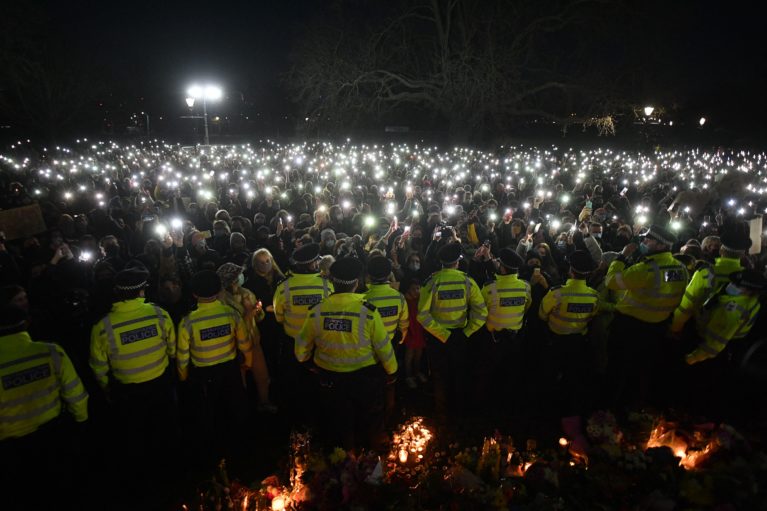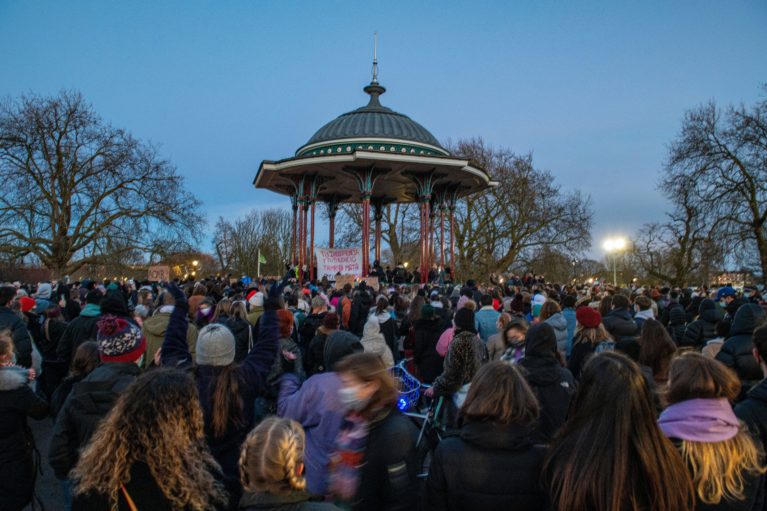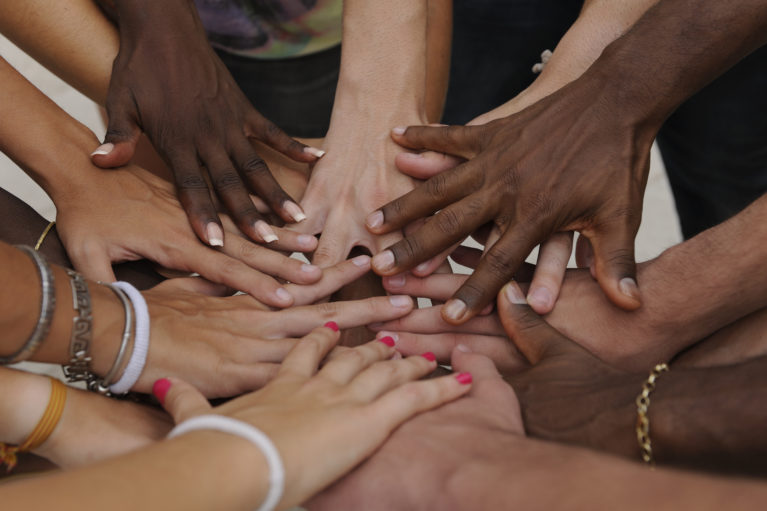Hostile environment / Women's rights
Safety, security and support – transforming the response to domestic abuse
Posted by Zehrah Hasan on 05 Jun 2018
Only by listening to human rights and women’s groups can ministers truly transform the response to domestic abuse in the UK.
Domestic abuse is one of the UK’s most pressing and devastating human rights issues.
It’s estimated that more than 1.9 million adults experienced domestic abuse in the year ending March 2017, of whom 1.2 million were female.
The 2017 Queen’s Speech finally made a commitment to protect victims through new legislation – the Domestic Violence and Abuse Bill. The Government is now putting those plans in motion with a consultation on its plans for this new law.
We’ve submitted a response, calling for victims’ human rights to be respected – and for safety, security and support to be at the heart of the Government’s approach.
Reporting without fear
The proposals fail to dismantle the many barriers victims face when reporting abuse.
Under the Government’s hostile environment regime, migrant victims with insecure status face a particularly harrowing choice between staying with their abuser, and detention or deportation.
Recent revelations show more than half of police forces in the UK are referring crime victims to the Home Office for immigration enforcement purposes.
In one case, a woman who was beaten by her partner was arrested by police and detained in Yarl’s Wood immigration detention centre.
Without safe reporting mechanisms, injustices like this will persist.
The culture of disbelief
Statutory agencies often fail to take victims’ allegations seriously, which can have devastating consequences.
In 2016, Katrina O’Hara was murdered by her abuser after the police wrongly classed her as the ‘attacker’ and seized her phone.
Katrina’s tragic and avoidable death is symptomatic of a much larger issue. A review of all 43 police forces in England and Wales found serious weaknesses in their domestic abuse operations.
And in 2016 police officers failed to show up to at least 39,686 call-outs.
We’re calling for courts to apply the legal duty under Article 3 of the Human Rights Act – established in a case brought by two of ‘black cab rapist’ John Worboys’ victims – to ensure police investigate crimes involving serious violence, including sexual assaults.
The College of Policing must also improve its training regime and be led by independent women’s groups when designing its programmes.
Safe accommodation and equality
Since 2010, the Government has repeatedly cut funding for refuges and safe accommodation, resulting in the closure of many specialist women’s services.
From 2016 to 2017, 60 per cent of all referrals to refuges were declined. On one day in 2017, 94 women and 90 children were turned away.
For migrant victims, the situation is even worse. Many are subject to a ‘No Recourse to Public Funds’ requirement on their immigration documents – meaning they cannot access funding for a refuge space.
This discriminatory scheme creates a two-tier system of safety for domestic abuse victims based on nationality, immigration status and race.
Access to justice
It’s no surprise that cuts to legal aid over recent years are hitting domestic abuse victims hardest.
And, without access to lawyers, both parties often end up representing themselves in court.
Over the past year, 24 per cent of victims were cross-examined by their alleged abusers, despite a government pledge in 2017 to ban this appalling practice.
Many victims fear prosecuting their abusers in the first place and often retract cases.
The Government must provide resources and funding for specialist domestic abuse services and advocates, who can support victims throughout the legal process.
Domestic abuse is a ‘driver’ of women’s offending, with 57 per cent of women in prison reporting having experienced abuse at the hands of a partner or family member.
We must end punitive measures that further traumatise vulnerable women.
Our approach to female offending should be preventative and rehabilitative.
Working towards a compassionate, effective and just system
The Government has suggested some welcome improvements to the current system, but it must go further to make this legislation fit for purpose.
At Liberty, our priorities are:
- Safe reporting mechanisms for all victims of abuse, regardless of their nationality or immigration status.
- End all hostile environment measures – particularly those that treat victims of crime unjustly and discriminate against migrant victims of abuse.
- All public services – including social services, healthcare providers, housing authorities and the police – must be properly equipped to help victims and children affected by domestic abuse.
- The new Domestic Abuse Commissioner should have meaningful and independent oversight over policy, practice and legislation.
- Victims needs more refuge spaces and specialist women’s services, to guide them towards safety, security and freedom.
- Victims with complex needs – including those with mental health issues, criminal convictions, disabilities and insecure immigration status – should be treated with fairness, equality and dignity.
- The Government must abolish the ‘No Recourse to Public Funds’ requirement.
- The Government must overhaul access to justice by improving legal aid provisions and ensuring that victims’ rights are at the heart of the court process.
Only by listening to human rights and women’s groups can ministers truly transform the response to domestic abuse in the UK.
I'm looking for advice on this
Did you know Liberty offers free human rights legal advice?
What are my rights on this?
Find out more about your rights and how the Human Rights Act protects them
Did you find this content useful?
Help us make our content even better by letting us know whether you found this page useful or not



